Providing a “safe operating space where eco-social development remains possible”
“Our human existence depends on the quality of the biosphere surrounding us. We ourselves have brought our planet dangerously close to the limit of what it can take. We can thus be all the happier that Johan Rockström, motivated by this realisation, has established our planet’s biophysical ceiling within which sustainable eco-social development remains possible. With scientific precision and constructive optimism, he, together with other reputed experts, has collected globally available data on the state of the Earth, assessed it and translated it into a concrete framework for action at a political, economic and social level. This keeps alive the hope that we can once more reconcile humankind and the biosphere.” This is how Dr. Heinrich Bottermann, General Secretary of the Deutsche Bundesstiftung Umwelt (DBU), today announced the choice of the director of the Stockholm Resilience Centre at Stockholm University, Prof. Johan Rockström (49), as the winner of the 2015 German Environmental Award of the DBU. German President Gauck will present the award to Prof. Rockström in Essen on 8 November. Prize money: 250,000 euros.
Nine environmental processes form the “planetary boundaries”
With the concept of “planetary boundaries”, Rockström is one of the “great thinkers and communicators in the field of environmentalism of our times” and his “epochal impact” can be “compared with the 1972 Club of Rome report 'The Limits to Growth',” Bottermann said. Together with a 28-strong team of scientists including Prof. Hans-Joachim Schellnhuber and Prof. Paul Crutzen, both former winners of the DBU Environmental Award, he identified the nine environmental processes that regulate the stability and resilience of the Earth system, in short the ability of our planet to support world development: climate change, loss of biodiversity and species extinction, biogeochemical flows (biogeochemistry is concerned with the chemical, biological and physical processes fundamental to the structure and functions of ecosystems or landscapes; here, the focus is on nitrogen and phosphorus), acidification of the oceans, use of fresh water, changes in land use, destruction of the stratospheric ozone layer, atmospheric aerosols (mixture of solid and fluid particles in the air that play an important role in the atmospheric energy budget and have a decisive impact upon regional climate and rainfall systems, as well as on atmospheric chemistry such as in the case of the ozone hole) and contamination with new substances such as chemicals, radioactive materials, nanomaterials and microplastics.
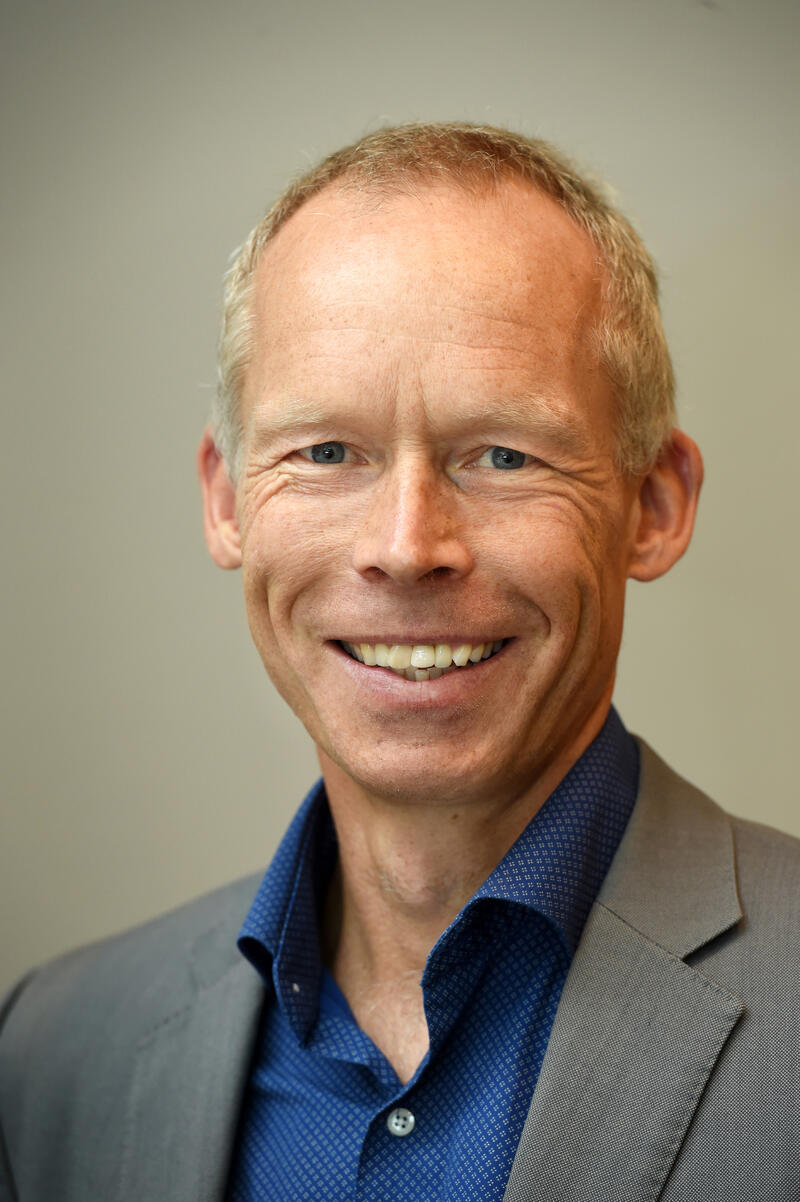
© DBU/Peter Himsel
Within planetary boundaries world development can occur and prosper
After six years of thorough scientific scrutiny by scientific peers across the world, since its first publication in 2009 (in the scientific journal Nature), the nine planetary boundaries were confirmed in a scientific update in 2015 (published in the scientific journal Science). For these nine boundary processes, attempts have been made to define quantitative maximum allowed boundary levels on the basis of concrete measurement parameters – similar to the goal of international climate politics to limit global warming to less than two degrees compared with the level before industrialisation began. Staying within these boundaries provide, according to Rockström’s research, a biophysical safe operating space for humanity on Earth, within which world development can occur and prosper. So far, proposed quantifications have been done for eight of the nine boundaries. Only chemical pollution remains unquantified.
Four of the nine boundaries have been transgressed
In the latest scientific assessment (2015) Rockström and his colleagues conclude that four of the nine boundaries have been transgressed, including climate change, biodiversity loss, contamination by nitrogen and phosphorus in the biosphere and changes in land usage. In their conclusion, this means that there is a growing danger of irreversible environmental changes that reduce the habitability of the Earth for humankind.
Rockström: Humanity depends on healthy ecosytems
Bottermann said Rockström was driven by the profound awareness humanity’s dependence not only on the ability of ecosystems to provide human wellbeing but also of the resilience of the biosphere and its ability to remain stable in its Holocene state (the stable inter-glacial state that over the past 12000 years has enabled modern world development) and that the developments of the past 200 years, particularly since the Second World War, have brought humanity so close to the ceiling of Earth’s safe boundaries that sudden, irreversible and potentially catastrophic global changes to the environment are no longer to be ruled out. To be able to continue to exist in safety, Bottermann said, humankind must act within these critical and hard-wired environmental boundaries and respect the nature of the climatic, geophysical, atmospheric and ecological processes in the Earth system. The risk of nonlinear changes in environmental conditions is growing every year, and can be seen, for example, in the climate system, by the way the Arctic summer sea ice is rapidly withdrawing, the melting of most glaciers worldwide and the accelerated rise in the sea level over the past ten to fifteen years, according to Bottermann.
More investment in sustainable ecosystems
In the process, humans had brought their ability to innovate into an acute environmental predicament, he said. For Rockström, he said, this was a paradoxical situation, as it was only human technical and socio-economic innovation that could lead the way out of it again: this was a guarantee for securing human well-being and for an optimal usage of the capacities of ecosystems. According to Bottermann, Rockström was certain that business and technology had to continue to become more ecological and that there needed to be more investment in sustainable ecosystems, such as future cities, agriculture and fishing.
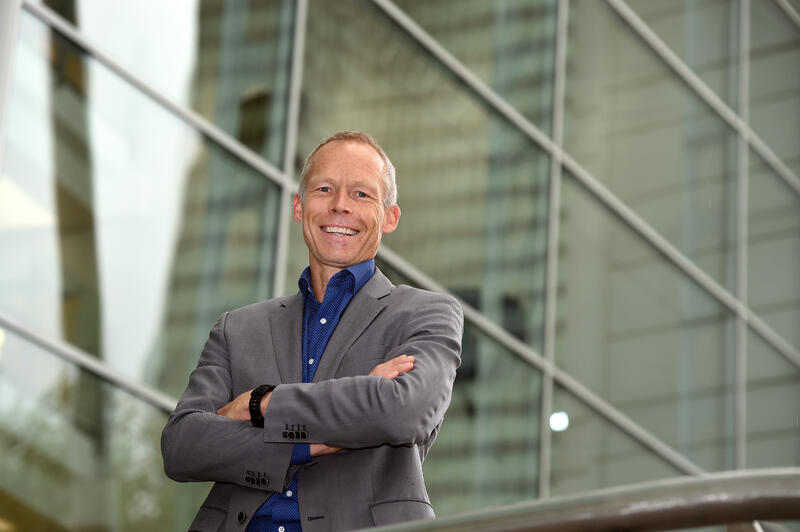
© DBU/Peter Himsel
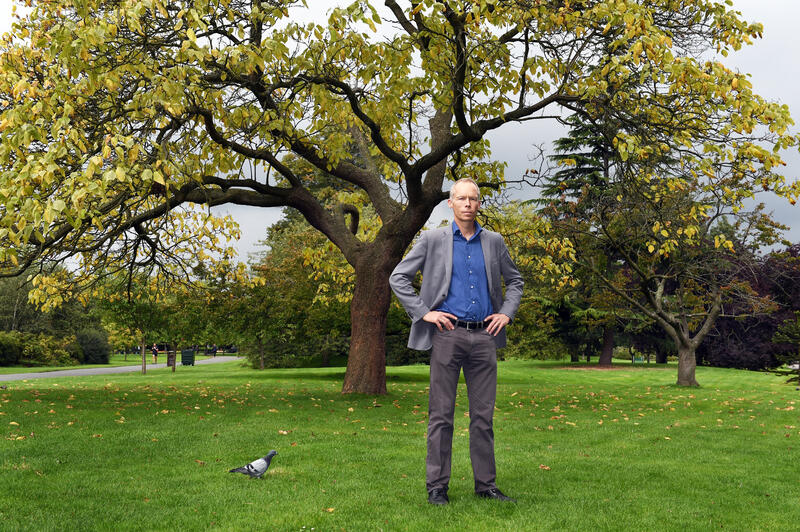
© Peter Himsel/DBU
"With a clear perception and a still clearer intelligence, he helps to find concrete solutions"
But Bottermann praised the fact that this had not caused Rockström to become pessimistic or resigned. “Rockström does not hide his head in the sand in the face of the world's problems. Instead, with a clear perception and a still clearer intelligence, he helps to find concrete solutions.” At the Stockholm Resilience Centre – here, resilience is understood as the ability of ecosystems to withstand external disturbances, their capacity to exist as before despite such disturbances and adapt to changing conditions without declining into a worse state – Rockström had applied systems analysis to globally recognised data and models in various fields, defined reasonable ecological limits and his research colleagues at the Stockholm Resilience Centre, building on decades of resilience research, has proposed seven principles for resilience building as a practical guide for action, Bottermann said, adding that Rockström wanted to use them to secure the social-ecological system of humankind/biosphere for the future and prevent its collapse.
Environmental debate more objective
Bottermann described how, in these principles, Rockström emphasised the value and the impact of continual education about the environment and the importance of public involvement and surveys that create trust and could bring about a common understanding on how to solve problems. At the same time, however, he also saw the problem caused by conflicts of objectives – such as those seen between food production and biodiversity – which cannot be solved simultaneously, Bottermann said. “Rockström has made an important and internationally recognised contribution to making the environmental debate more objective and setting priorities in various fields of environmental and nature protection.”
Signpost for decision-makers in politics, business or society
Although Rockström did not deliver “a master plan for sustainable development,” Bottermann said, he had critically identified planetary boundaries within which humankind could choose a path for its future development and well-being, and thus created an important foundation for this. His work could help decision-makers in politics, business or society to define frameworks for human operations and sustainable development, Bottermann said, calling it “a signpost towards a safe radius of action in the Earth system, whose defined limits we should not leave.” Rockström's concepts were now integrated into many political concepts on ensuring the sustainability of the planet, he said.
Rockström: With hope towards the meeting of the UN General Assembly
According to Bottermann, Rockström was looking with hope towards the meeting of the United Nations General Assembly that is to take place in a few days' time in New York, where the goals for a sustainable development of the planet are to be finalised: “The world has a huge opportunity to address global risks and ensure just solutions for them. With passion and commitment, we can create the right conditions for the long-term well-being of humanity within the boundaries of the planet.”
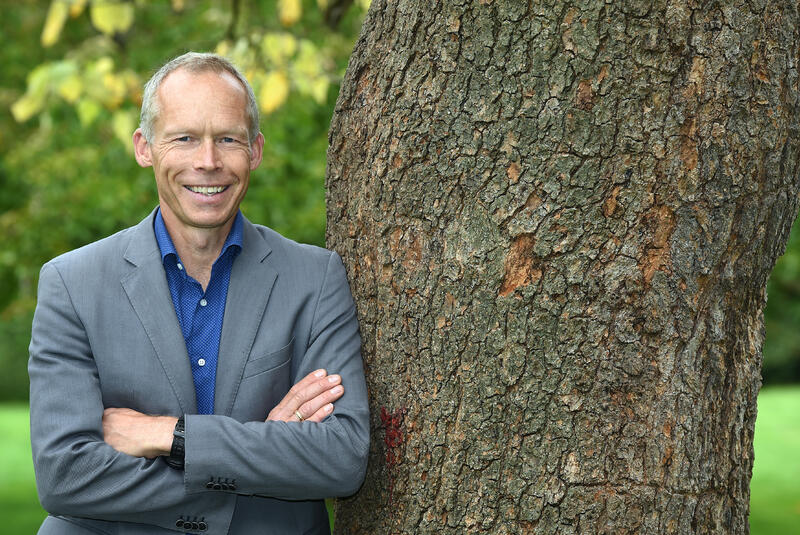
© Peter Himsel/DBU
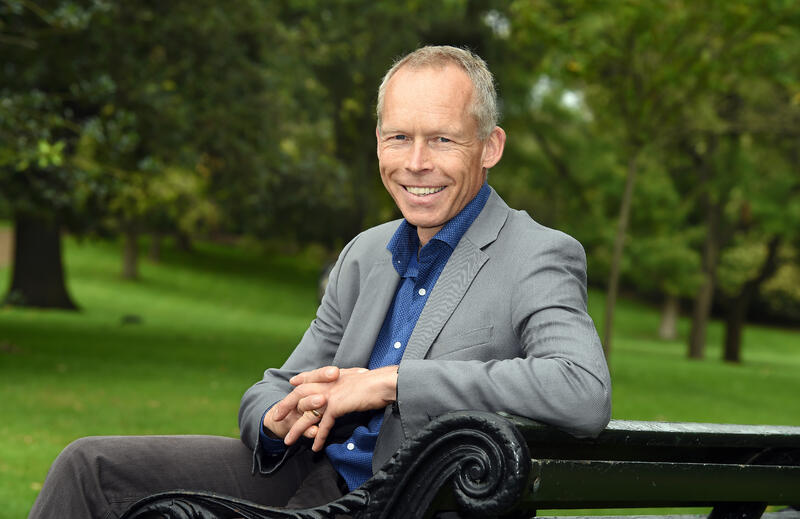
© Peter Himsel
Over 20 years of scientific work experience
Rockström, a global hydrologist and agronomist, studied soil science and hydrology in Uppsala and agricultural development at the “Institut national agronomique” in Paris. He then widened his research to global sustainability science and received his doctorate in the Department of Systems Ecology at Stockholm University, Sweden, where he had carried out research on the subject of systems ecology and natural resource management. He is Professor for Water Systems and Global Sustainability at Stockholm University, and has been a Visiting Professor at the Beijing Normal University, China. He led the design of Future Earth, the international integration of global environmental change research led by the International Council for Science (ICSU) and other partners. He chairs the Earth League and the Arctic Resilience Assessment of the Arctic Council. He further chairs the EAT initiative on food, health and sustainability, as well as the Water, Land Ecosystem program of the Consultative Group for International Agricultural Research (CGIAR). From 2004 to 2007, he was executive director of the Stockholm Environment Institute. Since 2007, he has been director of the Stockholm Resilience Centre. During his more than 20 years of scientific activity, he has worked, among other things, on interdisciplinary and transdisciplinary themes connected with the global management of water resources and land use, and on socio-ecological resilience and global materials cycles.
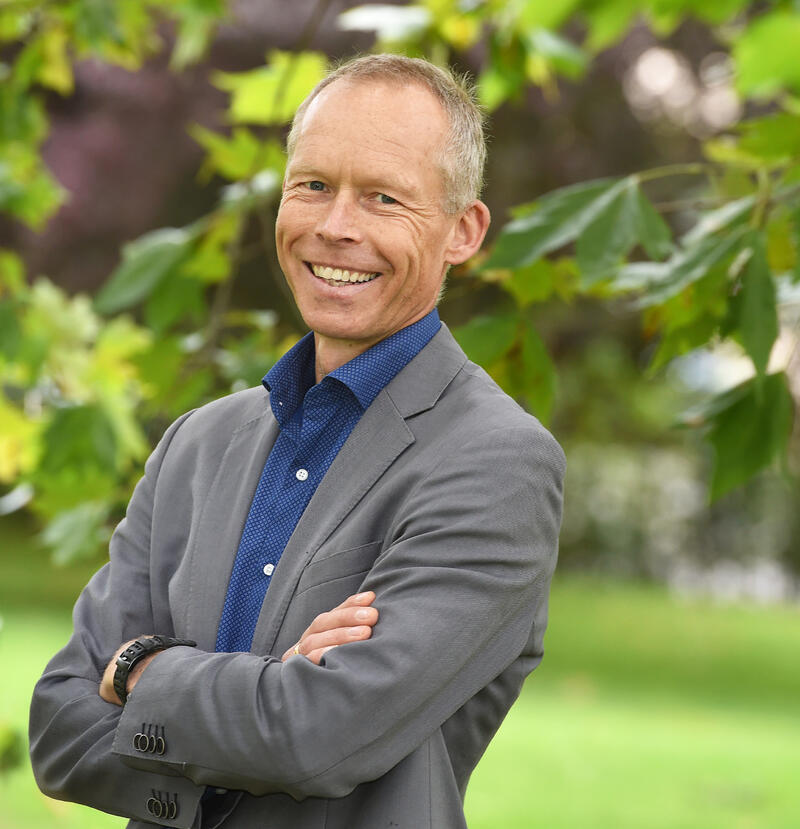
© Peter Himsel/DBU